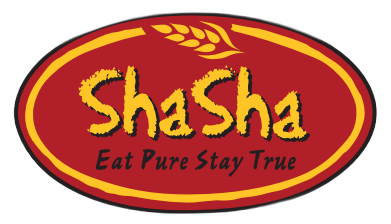
The Hidden Dangers in Our Food: What Big Corporations and Lax Regulations Don't Want You to Know
By: Shasha Shaun Navazesh, 2024
Today, more than ever, it's crucial to question what we're putting on our plates. Many of us believe that buying organic or choosing "all-natural" labels keeps us safe, but the reality of modern food production is far from comforting. Beneath the reassuring claims and clever marketing, there are hidden dangers in our food supply, primarily permitted by corporations more focused on profits than health, and governments disregarding these risks.
One of the most alarming issues is using Heavy metals and toxic gases to treat our food. These metals find their way into our meals and accumulate in our bodies, causing long-term health issues.
The Disturbing Reality of Food Today
Over the years, I've watched the food industry shift from health-focused, quality-driven practices to industrialized production systems where profits take center stage. With this shift, many food manufacturers have moved to adding fillers, preservatives, and artificial additives to maximize shelf life and cut costs. While these practices are concerning, there's an even darker issue at play: the use of heavy metals and fumigants that pose serious health risks but go largely unchecked.
Heavy Metals: A Growing Danger on Our Plates
Toxic heavy metals like lead, cadmium, mercury, and arsenic have become frighteningly familiar in our food supply. They enter our diets through soil, water, and even processing equipment, slowly accumulating in our bodies over time. Research shows that prolonged exposure to these metals can lead to neurological disorders, cardiovascular diseases, cancers, and immune system issues.
Many contaminants lurk in foods we eat daily, especially heavily processed products, yet they're rarely mentioned on food labels. The cumulative effect is especially worrying; heavy metals don't just pass through—they stay in our bodies, building up and gradually deteriorating our health.
Toxic Fumigation Gases: What Organic Labels Don't Cover
While many of us turn to organic certifications as a safeguard, there must be a hidden flaw in the system: Organic certifications primarily cover farming practices, not what happens after produce leaves the farm. This gap allows distributors to use harmful gases to fumigate fruits and vegetables, extending their shelf life and keeping them looking "fresh" on store shelves.
Some of the most common and harmful fumigation gases used in the food industry include:
Methyl Bromide: A potent fumigant used to control pests, methyl bromide exposure has been linked to respiratory issues, neurological damage, and even cancer. While it's highly regulated in many places, residues still appear on imported foods treated before arrival.
Chloropicrin: Known for its use as a chemical warfare agent, chloropicrin is also used to treat produce. Exposure can cause lung, eye, and skin irritation and long-term neurological damage.
Ethylene Dibromide (EDB): Often used to control pests in stored food, EDB is classified as a carcinogen and banned in many countries, yet it still finds its way into some imported foods. Prolonged exposure can damage the lungs, liver, and kidneys.
These gases are used in post-harvest handling, a stage in the supply chain where most consumers assume their organic or "natural" labels have protected them. Yet, these treatments must show up on labels, leaving consumers utterly unaware of the risks of these invisible contaminants.
RoThe of Corporations and Government Influence
Why aren't consumers better protected? Corporate lobbying is a powerful force, often influencing government regulations to favour profitability over public health. Many food corporations donate substantially to political campaigns, fund lobbyists, and work behind the scenes to delay or weaken safety regulations. The result? We, as consumers, are left vulnerable to unsafe practices while these corporations continue to profit.
This close relationship between corporations and regulators has created a regulatory environment where harmful post-harvest treatments continue unchecked. Even if studies raise red flags, big companies can avoid accountability by exploiting loopholes and lenient oversight.
How to Take Control of Your Health
Protecting ourselves and our families starts with knowledge and intentional choices. Here's what we can do to reduce exposure to heavy metals and toxic fumigants:
1. Buy from Transparent Sources: Farmers' markets and local farms are often more upfront about their practices, and their produce is typically less likely to have undergone fumigation or other post-harvest treatments.
2. Limit Imported Produce: When possible, choose local, in-season fruits and vegetables to avoid imported goods that may have been treated with harmful chemicals for long-distance transport.
3. Be Mindful of Labels and Claims: While organic and "all-natural" labels are a good start, remember that they don't tell the whole story. Seek out brands with transparent sourcing and handling practices to ensure safety.
4. Wash and Prep with Care: Washing produce thoroughly and peeling it can reduce some surface contaminants, though it won't remove everything. Consider using a high-quality produce wash for an added layer of protection.
5. Demand Accountability: One of our most effective actions is to demand stricter regulations and accountability. Support brands prioritizing consumer health and transparency and advocating for better food safety laws to protect us from these hidden dangers.
In conclusion, Wisely and Stay Informed
Our food system should work for us, not against us. As consumers, we must be vigilant, well-informed, and proactive about what goes into our bodies. By choosing wisely and advocating for stricter regulations, we can encourage a shift toward safer, more honest food practices.
Ultimately, our health is worth far more than corporations' profits, and we deserve safe, clean, and nourishing food—from the farm to our tables.
shasha 2024 
